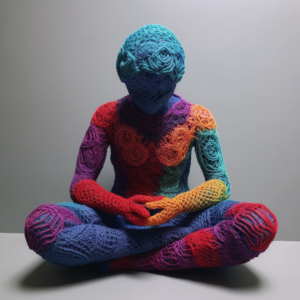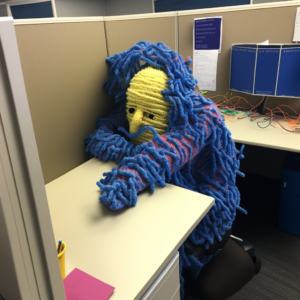What is Autism?
Autism Spectrum Disorder (ASD) is a complex and lifelong condition that affects individuals in different ways. The symptoms of ASD can range from mild to severe and may include challenges with communication, social interaction, and behavior. People with ASD may struggle to understand social cues, have difficulty making eye contact, and may avoid social situations altogether. They may also engage in repetitive behaviors such as hand-flapping or rocking back and forth. One of the defining features of ASD is the wide variation in symptoms and severity. Some individuals may have mild symptoms and be able to live relatively independent lives, while others may require significant support and assistance throughout their lives. This variability has led to the term “spectrum” disorder, reflecting the fact that each person with ASD is unique and may experience the condition differently. Autism is not a disease that can be cured. It is simply a different way of experiencing the world. Many people with ASD have strengths and abilities that are different from neurotypical individuals. For example, some people with ASD may have a remarkable ability to remember details or excel in areas such as math or music. With the right support, people with ASD can lead fulfilling and meaningful lives and make valuable contributions to society.The Impact of Autism on Family and Friends
Autism is a complex neurological disorder that affects social interaction, communication, and behavior. While it may be challenging for the individual who is diagnosed with autism, it can also be a challenging experience for their loved ones. Family members and friends may struggle to understand the changes and behaviors of their loved one, which can lead to frustration, confusion, and even guilt. The diagnosis of autism can be a significant turning point for families. It can be an overwhelming experience, but it is essential to remember that it is not the end of the world. It is a starting point in the journey towards understanding, acceptance, and support. It’s a time to learn more about autism and discover ways to help the individual live a fulfilling life. The journey towards understanding and adjusting to a loved one’s diagnosis of autism can be a long process. It takes patience, empathy, and a willingness to learn. Family members and friends must take the time to educate themselves about autism and its impact on the individual. They need to understand the individual’s needs, strengths, and challenges to provide the necessary support. It’s not unusual for loved ones to experience a range of emotions when their loved one is diagnosed with autism. The initial reaction may be shock, confusion, and even denial. However, as they learn more about autism, they may feel relief and gratitude for finally having an explanation for their loved one’s behavior. They may also feel guilty for not recognizing the signs earlier, which is a common feeling, but it’s essential to know that it’s not their fault.How to Behave with an Autistic Friend
When interacting with an autistic friend, it’s essential to be patient, understanding, and respectful. Here are some tips:- Respect their sensory needs: Autistic people may be hypersensitive or hyposensitive to sensory input. Respect their needs and comfort levels regarding noise, touch, and other stimuli.
- Communicate clearly: Be clear and direct in your communication. Avoid using idioms or sarcasm, which can be confusing.
- Respect their space: Autistic people may need more personal space than others. Always ask before initiating physical contact.
Is it Hard for Autistic People to Have Friends?
Autistic people can and do form meaningful relationships. However, they may face challenges in social situations due to differences in communication and social interaction. Misunderstandings can occur, but with patience, understanding, and clear communication, these can be overcome.How Can We Help Friends and Family with Autism?
Supporting a loved one with autism involves understanding, acceptance, and advocacy. Here are some ways to help:- Educate Yourself: Learn about autism and how it affects your loved one. Understanding their experiences can help you provide better support.
- Be Patient: Adjusting to a new diagnosis can take time. Be patient with your loved one and yourself as you navigate this new terrain.
- Advocate: Stand up for your loved one’s rights and inclusion in all areas of life.
Dispelling Common Myths About Autism
There are many misconceptions about autism. Here are a few common myths and the truths behind them:- Myth: Autistic people don’t want to make friends.
- Truth: Autistic people can and do form meaningful relationships. They might interact differently, but that doesn’t mean they don’t value friendship.
- Myth: Autism is caused by bad parenting.
- Truth: Autism is a neurodevelopmental condition. It’s not caused by parenting styles or practices.
- Myth: Autistic people are all alike.
- Truth: Autism is a spectrum disorder, meaning it affects individuals differently. Each autistic person is unique.
The Importance of Empathy and Understanding Autism
Empathy and understanding are crucial when supporting an autistic loved one. By seeking to understand their experiences and showing empathy, you can help create an environment where they feel seen, accepted, and loved. At Epic Autism, we believe in the power of understanding and empathy. We strive to provide comprehensive, accessible information and practical strategies for individuals onthe autism spectrum, their families, and professionals. Our content is created by individuals on the spectrum, ensuring authentic, firsthand insights.Understanding Autism: Conclusion
Understanding autism is a journey, but it’s a journey worth taking. Autism is a complex and multifaceted condition that affects individuals in different ways. For friends and family members of late-diagnosed autistic adults, understanding and acceptance can be a journey filled with learning, empathy, and growth. It is crucial to dispel common myths about autism, educate ourselves, and advocate for the rights and inclusion of our loved ones. By showing empathy and understanding, we can create an environment where individuals with autism feel seen, accepted, and loved. At Epic Autism, we are committed to providing accessible information and practical strategies for individuals on the spectrum, their families, and professionals, ensuring authentic, firsthand insights. Let us work together to create a world that celebrates the strengths and abilities of individuals with autism and provides them with the support they need to lead fulfilling and meaningful lives. By seeking to understand your autistic loved ones, you can help foster a more inclusive, accepting, and empathetic world. Remember, every step you take towards understanding is a step towards acceptance and love.Similar Articles

Mindfulness and Autism: Exploring the Benefits of Meditation for Late-Diagnosed Autistic Adults
Table of Contents Mindfulness and Autism: Introduction Understanding the Connection Between Mindfulness and Autism Mindfulness-Based Interventions for Autism: Current Research and Future Directions The Benefits

Recognizing the Signs of an Autistic Meltdown
An autistic meltdown can be overwhelming and distressing for both the individual and those around them. Recognizing the signs of an impending meltdown can help prevent it from escalating. Common signs include increased anxiety, sensory overload, and difficulty communicating. It’s important to provide a safe and calming environment and offer support and understanding during and after the meltdown.

Autism and Communication: Tips for Friends and Family to Foster Effective Interaction
Autism Spectrum Disorder (ASD) is a neurodevelopmental condition that affects communication and social interaction. Individuals with autism have unique communication styles and needs, which can










3 Responses
Hi there,
If your business needs flexible access to working capital, we can help.
We offer a revolving line of credit up to $250,000 — no credit checks, no paperwork, and no sales calls.
Approval takes less than 30 seconds and funds are available when you need them.
Check your eligibility here:
http://www.expresscapitalcorp.com/approval
Wishing you continued success,
Jason Keller
Small Business Funding Specialist
Express Capital
Unsubscribe anytime: expresscapitalcorp.com/unsubscribe
fomytp
0v34co